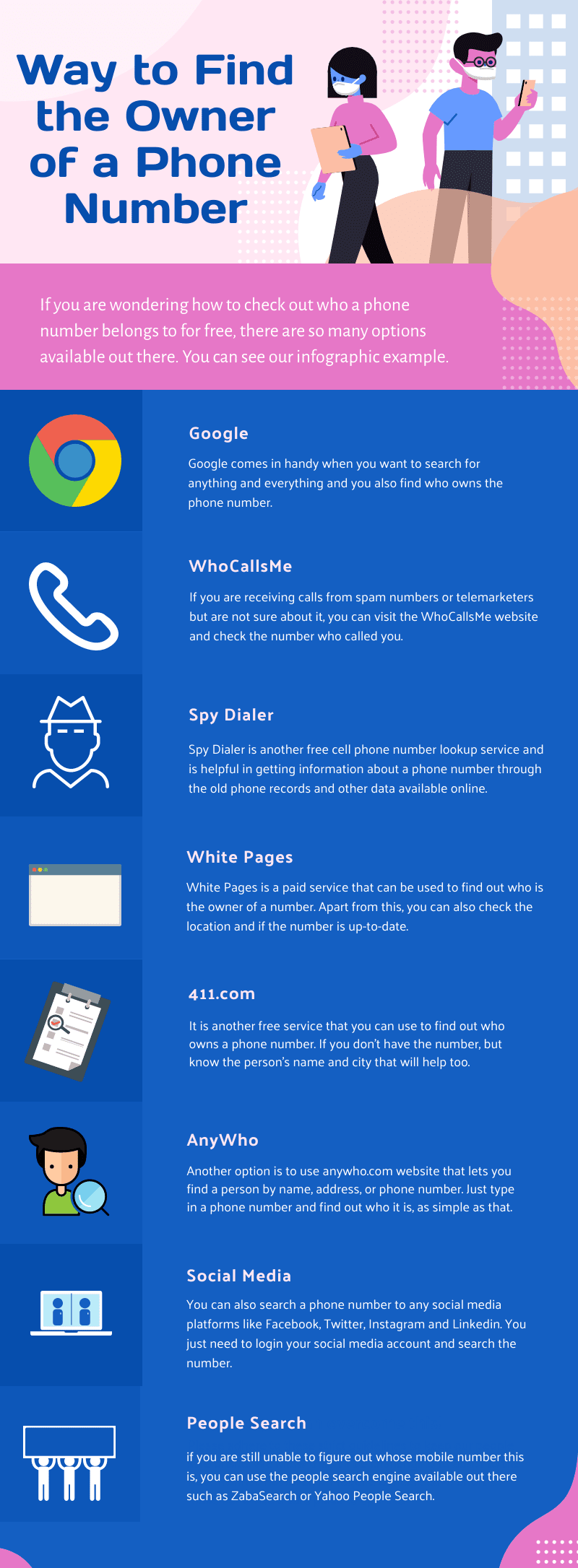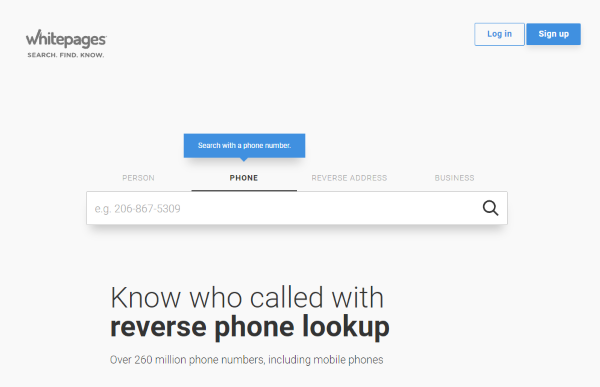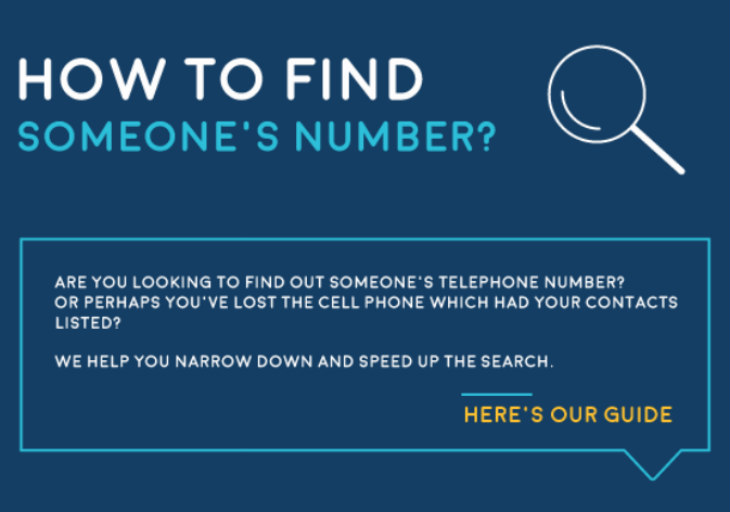How To Figure Out Who A Phone Number Belongs To

In an era dominated by constant connectivity, a mysterious phone number appearing on your caller ID can be a source of curiosity, anxiety, or even outright fear. Whether it's an unanswered call, a puzzling text message, or a potential scam attempt, the desire to identify the owner of an unknown number is a common impulse. But navigating the landscape of phone number identification requires caution, awareness of legal boundaries, and a discerning eye for the tools available.
This article will explore the various methods, both free and paid, that individuals can utilize to identify the owner of a phone number while emphasizing the importance of ethical considerations and legal compliance. We'll delve into the functionality and limitations of each approach, providing a comprehensive guide to safely and effectively uncovering the mystery behind the digits.
The Initial Steps: Free and Simple Methods
Before resorting to paid services or more involved methods, several free options can often provide quick answers.
Google Search remains a powerful tool. Simply entering the phone number into the search bar can sometimes yield surprisingly direct results, especially if the number is associated with a business or public profile.
Social media platforms like Facebook and LinkedIn also offer search functionalities. Typing the number into the search bar may reveal a matching profile, particularly if the user has included their phone number in their public information.
Another avenue to explore is messaging apps like WhatsApp or Telegram. These apps often allow you to see the profile associated with a phone number, provided the user has an account linked to that number.
Utilizing Reverse Phone Lookup Services
When free methods fail, reverse phone lookup services offer a more targeted approach. These services compile publicly available data from various sources to provide information associated with a specific phone number.
Many websites offer free versions of reverse phone lookup, but these often provide limited information, such as the general location or type of phone line (landline or mobile). While helpful, this is generally not helpful in identifying the user.
Paid reverse phone lookup services, on the other hand, typically provide more detailed information, including the name, address, and sometimes even background information associated with the number.
Examples of popular paid services include BeenVerified, TruthFinder, and Intelius. These services often require a subscription fee to access their full range of data.
Considerations When Using Reverse Phone Lookup Services
It's essential to be aware of the limitations and potential drawbacks of these services.
The accuracy of the information provided can vary depending on the service and the availability of public records. Data may be outdated or incomplete.
Privacy concerns are also paramount. Using these services to harass or stalk someone is illegal and unethical. It's crucial to use the information responsibly and within the bounds of the law.
Read the terms of service and privacy policies of any reverse phone lookup service before using it. Be aware of how your data will be used and stored.
The Ethical and Legal Landscape
Identifying the owner of a phone number can have serious ethical and legal implications. It's important to understand the boundaries of what is permissible and what is not.
Using obtained information to harass, threaten, or stalk someone is illegal and can have severe consequences. Federal and state laws protect individuals from harassment and stalking.
The Telephone Consumer Protection Act (TCPA) regulates telemarketing calls and text messages. It's illegal to use automated dialing systems to call mobile phones without prior consent.
Respecting privacy is crucial. Avoid sharing personal information obtained through phone number identification without the consent of the individual.
"The pursuit of information should always be tempered with respect for individual privacy and adherence to legal boundaries," says David Smith, a privacy lawyer specializing in data protection.
When to Involve Law Enforcement
In certain situations, identifying the owner of a phone number becomes a matter of safety and should be handled by law enforcement.
If you are receiving threatening or harassing calls or text messages, report the incident to the police. They have the resources and legal authority to investigate and take appropriate action.
If you believe you are being targeted by a scam or fraud, report the incident to the Federal Trade Commission (FTC) and your local law enforcement agency.
Do not attempt to confront or engage with the individual directly if you feel threatened. Let law enforcement handle the situation.
Future Trends and Technologies
The landscape of phone number identification is constantly evolving with the emergence of new technologies and data privacy regulations.
Artificial intelligence (AI) and machine learning are being increasingly used to analyze phone number data and identify patterns that can help detect fraudulent or spam calls.
Blockchain technology is also being explored as a way to create secure and transparent phone number databases that can help prevent spoofing and fraud.
Increased awareness of data privacy is leading to stricter regulations and greater control over personal information, which may impact the availability and accuracy of phone number identification services.
Ultimately, figuring out who a phone number belongs to is a process that requires careful consideration, a combination of available tools, and a commitment to ethical and legal conduct. By understanding the limitations and potential pitfalls of each approach, individuals can navigate this landscape safely and responsibly.

![How To Figure Out Who A Phone Number Belongs To [ 2025 Guide] How to Find Out Who a Phone Number Belongs To](https://images.clevguard.com/enassets/images/article/how-to-find-out-who-a-phone-number-belongs-to.jpg)
















